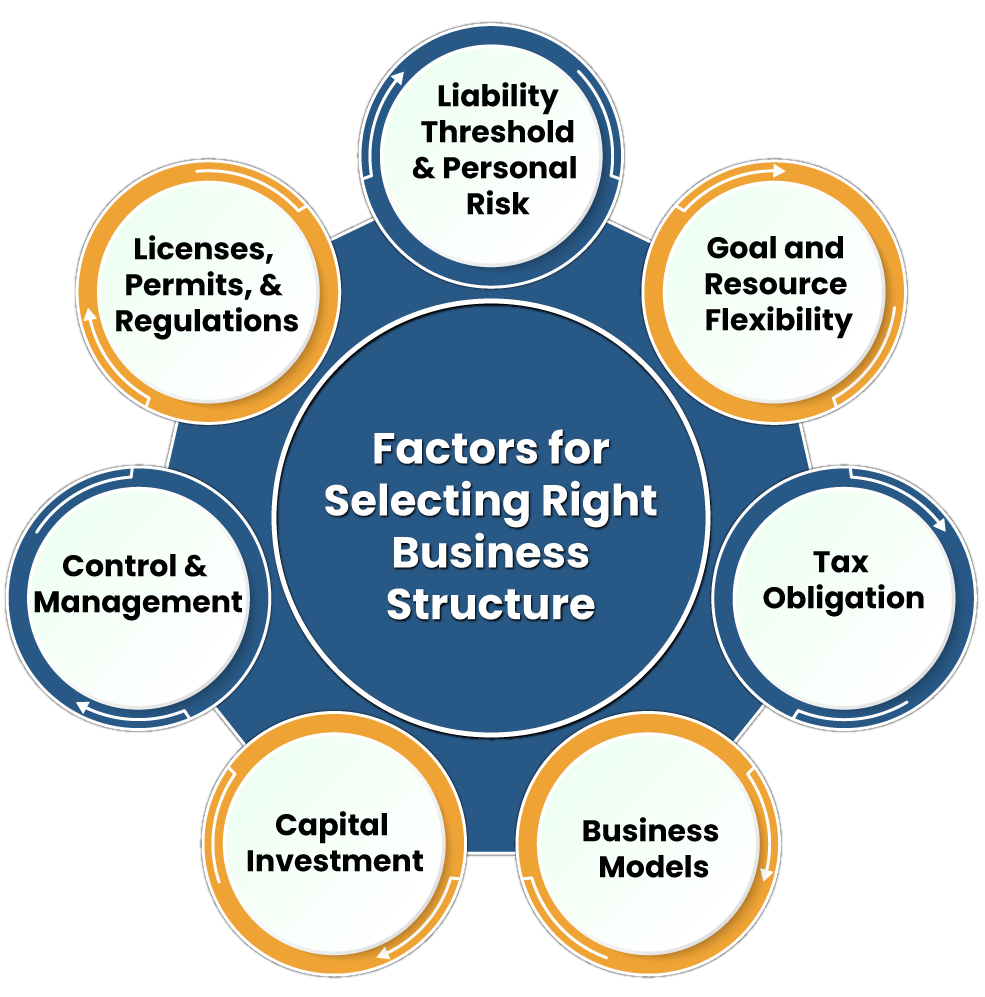How to Choose the Right Business Structure for Your Company

Starting a business is like building a house. You need a solid foundation to ensure it stands the test of time. In the business world, that foundation is your business structure. Choosing the right one can mean the difference between a thriving enterprise and a crumbling startup. So, how do you choose the right business structure for your company? Let's dive in.
Understanding Business Entities
Before we delve into the specifics, let's understand what a business entity is. Simply put, it's the legal structure of your business, defining how it's organized, how it operates, and how it's taxed. The most common types include sole proprietorships, partnerships, limited liability companies (LLCs), and corporations. Each comes with its own set of advantages and disadvantages, which we'll explore below.
Factors to Consider When Choosing a Business Structure
Legal Structure
The legal structure of your business determines your level of liability protection. For instance, sole proprietorships offer no liability protection, meaning your personal assets are at risk if your business faces legal issues. On the other hand, LLCs and corporations offer limited liability protection, shielding your personal assets from business debts and lawsuits.
Tax Implications
Different business structures have different tax implications. Sole proprietorships, partnerships, and LLCs are pass-through entities, meaning the business income passes through to the owners' personal tax returns. Corporations, however, are subject to double taxation—the business pays taxes on its profits, and shareholders also pay taxes on their dividends.
Liability Protection
Liability protection is a crucial factor to consider. If your business involves high-risk activities or significant debts, you might want to opt for a structure that offers limited liability protection, like an LLC or a corporation.
Startup Costs and Complexity
Some business structures are easier and cheaper to set up than others. Sole proprietorships and partnerships are relatively simple and inexpensive to establish, while LLCs and corporations involve more complex formation processes and higher fees.
Types of Business Structures
Sole Proprietorship
A sole proprietorship is the simplest and most common business structure. It's easy to set up and gives you complete control over your business. However, it offers no liability protection, and you're personally responsible for all business debts and legal issues.
Partnership
A partnership is a business owned by two or more people. It's relatively easy to set up and allows for shared responsibility and decision-making. However, like sole proprietorships, partnerships offer no liability protection.
Limited Liability Company (LLC)
An LLC combines the simplicity and flexibility of a partnership with the liability protection of a corporation. It's a popular choice among small business owners due to its tax advantages and limited liability protection. However, forming an LLC involves more complex legal procedures and higher fees than a sole proprietorship or partnership.
Corporation
A corporation is a separate legal entity from its owners, offering the highest level of liability protection. It's subject to double taxation but can issue stock to raise capital. Forming a corporation involves complex legal procedures and high fees.
:max_bytes(150000):strip_icc()/business-entities-3193420_final-9806a9e0701a4f60b9e06d36e0e0338b.png)
How to Choose the Right Business Structure for Your Company
Choosing the right business structure involves considering your business goals, the level of liability protection you need, and the tax implications you're comfortable with. Here are some steps to guide you:
Assess Your Business Goals: Do you plan to stay small or expand rapidly? Your business goals will significantly influence your choice of business structure.
Evaluate Your Risk Tolerance: How much personal risk are you willing to take? If you're not comfortable with high risk, opt for a structure with limited liability protection.
Consider Tax Implications: How do you want your business to be taxed? Understanding the tax implications of each structure can help you make an informed decision.
Consult a Professional: It's always a good idea to consult with a business attorney or accountant. They can provide personalized advice based on your unique situation.
Changing Your Business Structure
Remember, your initial business structure isn't set in stone. As your business grows and evolves, you might need to change your business structure to better suit your needs. For instance, you might start as a sole proprietorship and later convert to an LLC or a corporation as your business expands.
Conclusion
Choosing the right business structure is a critical decision that can significantly impact your business's success. It's like choosing the right blueprint for your house—it determines the layout, the strength of the foundation, and the overall stability of the structure. So, take the time to understand the different types of business structures, consider the factors that influence your decision, and seek professional advice if needed.

FAQs
What is the easiest business structure to set up? The easiest business structure to set up is a sole proprietorship. It requires minimal paperwork and no formal registration with the state.
Which business structure offers the best liability protection? Corporations offer the highest level of liability protection. They are separate legal entities from their owners, shielding personal assets from business debts and lawsuits.
Can I change my business structure later? Yes, you can change your business structure later. Many businesses start as sole proprietorships and later convert to LLCs or corporations as they grow.
What is a pass-through entity? A pass-through entity is a business structure where the business income passes through to the owners' personal tax returns. Examples include sole proprietorships, partnerships, and LLCs.
Should I consult a professional when choosing a business structure? While not required, it's highly recommended to consult a business attorney or accountant. They can provide personalized advice based on your unique situation and help you make an informed decision.
Choosing the right business structure is a significant step in your entrepreneurial journey. Take the time to understand your options, consider your needs, and seek professional advice. With the right foundation, your business can thrive and stand the test of time.
0 Response to "How to Choose the Right Business Structure for Your Company"
Post a Comment